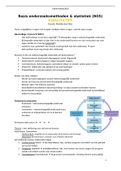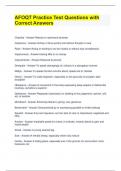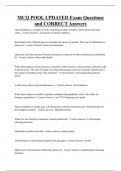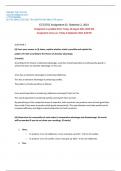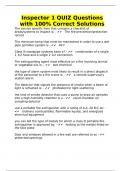How is Gerald Croft presented in An Inspector Calls?
In J.B Priestley's play 'An Inspector Calls', he presents a high-class business man named Gerald Croft. As
the story unfolds, we learn of his reputation he has around the town and how he paints himself as a
knight in shining armour when Gerald is asked to retell his story about his elaborate affair with Daisy
Renton or known to him later in the play, Eva Smith, while engaged to Sheila Birling. Priestley
consilidates the similarities between him and Mr Birling with their ideologies of business and capitalism.
In Act 1, the writer opens up with a series of stage directions introducing each character. For Gerald
Croft, it reads that he is a 'well bred young man about town'. From this, we know that Gerald was born
into being very wealthy and in a high standing family suggested in 'well bred' instigating a tone of
sophistication. It furthermore hints that he has a reputation around town perhaps because of his
business or that of his mingling with women: Priestley sows the seed of doubt in the audience as soon as
we encounter him as to question his devotion to Sheila and his motives throughout the play.
Developing to Act 2, the Birling family and the Inspector find out of his involvement with Eva's suicide,
explaining that he kept her under his wing for quite some time in her desperate time of need without
informing Sheila. Gerald tries his best to justify his actions saying 'I became at once the most important
person in her life - you understand?'. The superlative 'most important' can be easily pointed out by the
audience as feelings of guilt when it heightens how he seeks to share his motives as decent and is very
keen to absolve himself of any guilt. This demonstrates that he paints himself to be an innocent
character or as Sheila said, a 'wonderful fairy prince'. Priestley shows the vulnerability of Gerald in this
part to contrast with what he does later.
Ending on the final act, his vulnerable state transitions when he finds out the Inspector was not real at
all, or so he thought. Gerald states 'We've no proof if it was the same photograph and therefore no proof
it was the same girl' which further validates that he finds approval to prevent responsibility and mockery
from the older generation as he is part of the middle generation. This conveys his absolute lack of
remorse towards the situation and his contribution towards Daisy Renton's death. Gerald repeats 'same'
highlighting his arrogance, viewing responsibility to the whether it was the same girl in the photo. The
writer illustrates his callousness in wake of all the Inspector has taught them.
Finally, despite everything that was discussed, Gerald still had the audacity to ask Sheila 'What about this
ring?'. This tells us that he has learnt nothing and does not think of what his affair would have affected. A
'ring' is symbolic of materialism though it is a symbol of love and commitment, conveying the greedy
nature of the upper class and to portray them to have no feelings. Therefore, this would serve as a
reinforcer to show how the relationship between Sheila and Gerald is a business deal which in turn
would condone why Gerald thinks that the affair would not hurt Sheila. Moreover, the ring is much like
the engagement between them, beautiful on the outside yet the inside is decayed.
To conclude, Priestley depicts Gerald to be a cold hearted, inconsiderate man which is strategically
written so audiences can see the fake attitudes and characters upper classes at the time put on in public
- and rather unsympathetic in reality. Likewise, he interprets him as someone who does not take
responsibility, so it can teach a lesson to those like him, to change and to demonstrate to readers, that
they should avoid developing into a character like Gerald Croft.
In J.B Priestley's play 'An Inspector Calls', he presents a high-class business man named Gerald Croft. As
the story unfolds, we learn of his reputation he has around the town and how he paints himself as a
knight in shining armour when Gerald is asked to retell his story about his elaborate affair with Daisy
Renton or known to him later in the play, Eva Smith, while engaged to Sheila Birling. Priestley
consilidates the similarities between him and Mr Birling with their ideologies of business and capitalism.
In Act 1, the writer opens up with a series of stage directions introducing each character. For Gerald
Croft, it reads that he is a 'well bred young man about town'. From this, we know that Gerald was born
into being very wealthy and in a high standing family suggested in 'well bred' instigating a tone of
sophistication. It furthermore hints that he has a reputation around town perhaps because of his
business or that of his mingling with women: Priestley sows the seed of doubt in the audience as soon as
we encounter him as to question his devotion to Sheila and his motives throughout the play.
Developing to Act 2, the Birling family and the Inspector find out of his involvement with Eva's suicide,
explaining that he kept her under his wing for quite some time in her desperate time of need without
informing Sheila. Gerald tries his best to justify his actions saying 'I became at once the most important
person in her life - you understand?'. The superlative 'most important' can be easily pointed out by the
audience as feelings of guilt when it heightens how he seeks to share his motives as decent and is very
keen to absolve himself of any guilt. This demonstrates that he paints himself to be an innocent
character or as Sheila said, a 'wonderful fairy prince'. Priestley shows the vulnerability of Gerald in this
part to contrast with what he does later.
Ending on the final act, his vulnerable state transitions when he finds out the Inspector was not real at
all, or so he thought. Gerald states 'We've no proof if it was the same photograph and therefore no proof
it was the same girl' which further validates that he finds approval to prevent responsibility and mockery
from the older generation as he is part of the middle generation. This conveys his absolute lack of
remorse towards the situation and his contribution towards Daisy Renton's death. Gerald repeats 'same'
highlighting his arrogance, viewing responsibility to the whether it was the same girl in the photo. The
writer illustrates his callousness in wake of all the Inspector has taught them.
Finally, despite everything that was discussed, Gerald still had the audacity to ask Sheila 'What about this
ring?'. This tells us that he has learnt nothing and does not think of what his affair would have affected. A
'ring' is symbolic of materialism though it is a symbol of love and commitment, conveying the greedy
nature of the upper class and to portray them to have no feelings. Therefore, this would serve as a
reinforcer to show how the relationship between Sheila and Gerald is a business deal which in turn
would condone why Gerald thinks that the affair would not hurt Sheila. Moreover, the ring is much like
the engagement between them, beautiful on the outside yet the inside is decayed.
To conclude, Priestley depicts Gerald to be a cold hearted, inconsiderate man which is strategically
written so audiences can see the fake attitudes and characters upper classes at the time put on in public
- and rather unsympathetic in reality. Likewise, he interprets him as someone who does not take
responsibility, so it can teach a lesson to those like him, to change and to demonstrate to readers, that
they should avoid developing into a character like Gerald Croft.



